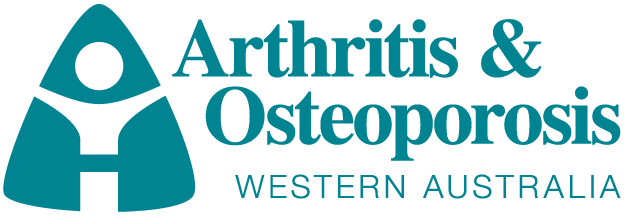Ilana Ackerman is a musculoskeletal researcher from Monash University and an experienced orthopaedic physiotherapist who was part of the topic working group that developed the Osteoarthritis of the Knee Clinical Care Standard.
The Osteoarthritis of the Knee Clinical Care Standard was launched in May 2017 by the Australian Commission on Safety and Quality in Health Care (ACSQHC) after an 18-month development process. This involved experts from general practice, rheumatology, orthopaedic surgery, radiology, sports medicine, physiotherapy and nursing, as well as consumer representatives.
The Clinical Care Standard is a collection of quality statements – these statements outline the important components of care that all people with knee osteoarthritis should receive, regardless of where they live in Australia. This includes a comprehensive clinical assessment, education and support to manage osteoarthritis, weight loss (if appropriate), exercise, medications for managing symptoms, planned clinical reviews, and where needed, referral for consideration of surgery such as knee replacement.
The main reason for developing the Clinical Care Standard was the Australian Atlas of Healthcare Variation, which showed great variation in care being received across the country. For example, there were large differences in rates of knee arthroscopy surgery – over 4 times higher in some areas of Australia than others.
With the introduction of this Clinical Care Standard we hope that all people with knee osteoarthritis will receive high-quality care that is appropriate for their condition and their specific circumstances.
Consumer fact sheets are also available online from the ACSQHC website and provide helpful information for people with knee osteoarthritis (presented as ‘What the standard says’ and ‘What this means for you’). Visit www.safetyandquality.gov.au/ccs
One of the most important aspects of the Clinical Care Standard is the focus on education, exercise and weight loss. Education is very important along the entire osteoarthritis care journey and should be provided by each health professional you see. This helps people understand what knee osteoarthritis is, what treatments are effective (and just as importantly, what treatments are not effective), and how best to manage their condition. Providing clear information can help to reduce fears about osteoarthritis and address common misconceptions about the condition. For example, some soreness or increased pain may occur during and after exercise and this is normal – it doesn’t mean exercise is making your osteoarthritis worse.
We now have lots of evidence showing that a tailored exercise program can produce improvements in pain and function for people with osteoarthritis. We even have evidence showing that exercise can be helpful for people with moderate to severe knee osteoarthritis. However, we also know that many people with osteoarthritis do not meet the recommended 10,000 steps per day. One of the main barriers to exercising with knee osteoarthritis is pain, and effective pain medications may be needed to allow people to exercise more comfortably. For some people, non-weight-bearing exercise options (including water-based exercise) may need to be considered.
There is a difference between exercises to build cardiovascular fitness or for weight loss versus a knee-specific exercise program that is designed to target knee muscle strength or improve muscle activation. For knee osteoarthritis, both forms of exercise are important. It’s important to get the correct advice from a qualified health professional, such as a physiotherapist, who can design an appropriate exercise program for you and modify this according to your symptoms and as you get stronger.
New research into osteoarthritis and falls
Another area that members may be interested in is our new research into osteoarthritis and falls. We are very fortunate to be supported by a 2018 Arthritis Australia and State/Territory Affiliate Grant for this work. Our research team includes Monash University falls prevention researchers Dr Sze-Ee Soh and Associate Professor Anna Barker.
We know that osteoarthritis and falls both commonly affect older people. Falls are a leading cause of injury (including fractures) and hospitalisation among older people. While we have strong evidence for falls prevention programs, we know that assessing someone’s risk of falling is not included in international clinical guidelines for osteoarthritis. We also know that falls prevention is not usually part of standard osteoarthritis care. So the falls prevention evidence clearly hasn’t made it across into clinical practice and policy.
Our research aims to identify falls risk factors among people with hip or knee osteoarthritis and so far we have analysed data from nearly 5,000 people who are part of the United States-based Osteoarthritis Initiative. We also want to understand what’s happening in osteoarthritis clinical practice in Australia and over 400 physiotherapists have now responded to our online survey into osteoarthritis and falls prevention.
The final part of our research will look at falls risk beliefs among people with osteoarthritis, and what factors might help or hinder people taking part in falls prevention activities. We are now recruiting participants (people aged 50 years or over who have been diagnosed with hip or knee osteoarthritis) for a single telephone interview to help us answer this research question.
For more information about this study or to find out how to take part please visit www.arthritisaustralia.com.au/programs-research/research-studies/current-research-studies/





